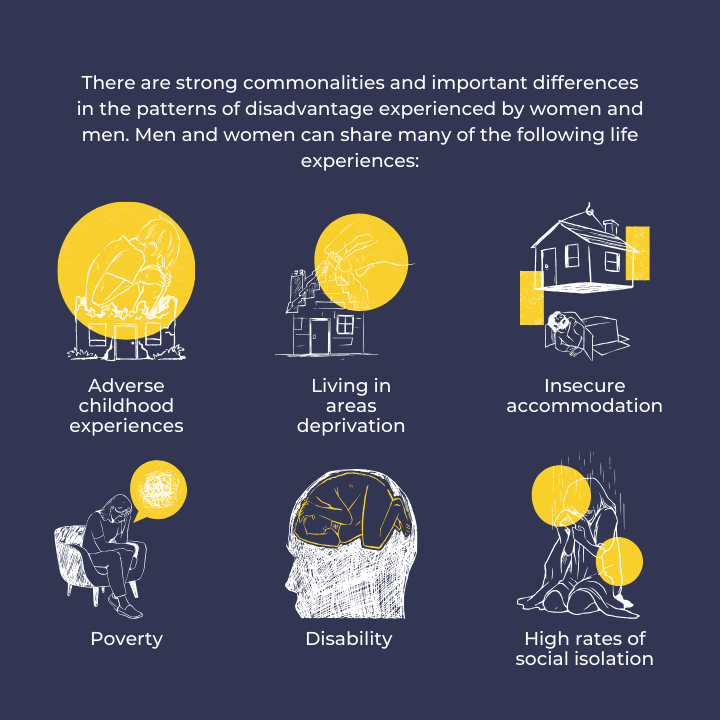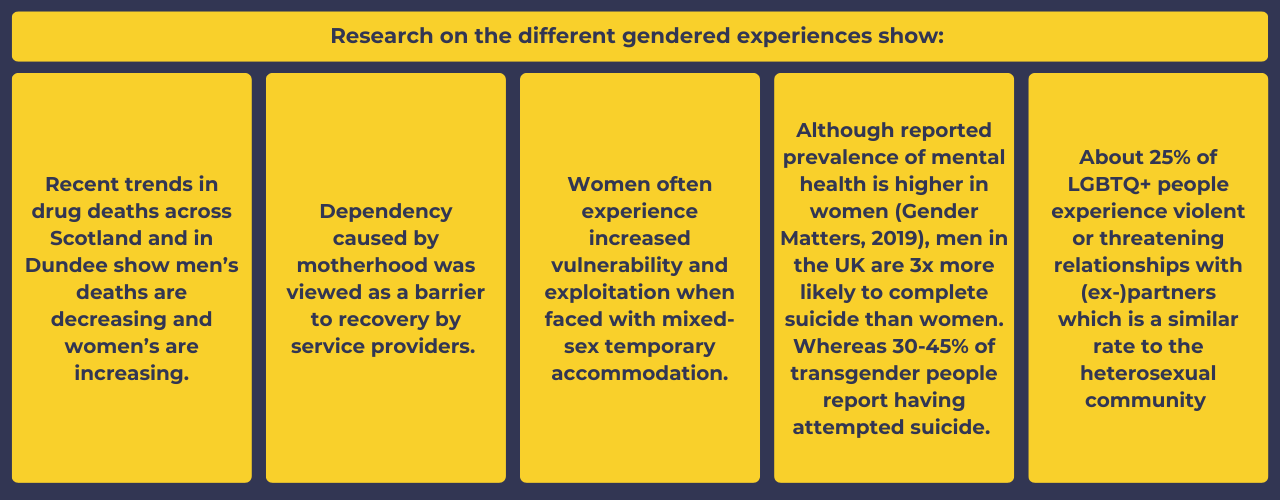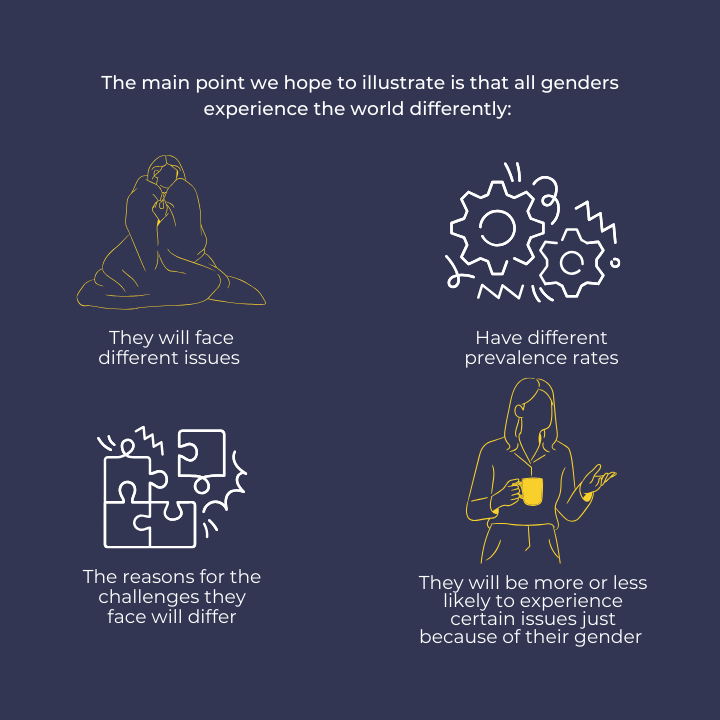

The Gendered Services Project
This is a project funded by the CORRA Foundation and the Dundee Alcohol and Drug Partnership. The Project aims to support services to develop a gendered approach to their service delivery. The Gendered Services Project specifically addresses one of the recommendations from the Dundee Drug Commission (2019) - Recommendation 15: Ensure that the needs of women who experience harm from substance use are assessed and addressed via adoption of gender-mainstreaming and gender-sensitive approaches to service planning. Research shows that women face additional barriers when trying to access services. This is why the Project has a specific focus on engaging with services to improve their accessibility for women.
The Project is driven by women with lived experience of complex trauma. Women involved have co-produced an array of learning resources. These resources are utilised in training and their feedback has led to the development of the Dundee Women’s Hub.
The project is currently focussing on certain aspects of women’s health, and identifying how we can reduce barriers for women accessing support. The areas the project will be working with include:
- Sexual and reproductive health
- Mental health
- Pharmacies
- Harm reduction
- MAT standards
- GP shared care
Scroll down to explore some of these resources.
Why focus on gender?
Despite the progress society has made around expanding the understanding of gender, harmful stereotypes still exist around traditional gender roles. These stereotypes continue to impact and shape how we function in society. Therefore, gender-based approaches are important for everyone, whether a person identifies as male, female or non-binary.
In Dundee the current work carried out by the Gendered Services Project is focused on all women. Highlighted by The Gender Matter Report (2019), a significant number of women face combinations of severe disadvantage at least as serious as those faced by men and on an equivalent scale. Part of the reason this has not been so visible before is that we have relied on administrative data from services, and so the experiences of women who are not on their caseloads have remained hidden.
At the same time, experiences diverge, and disadvantages combine in different ways. Poor mental health, violence and abuse are particularly significant in the lives of women. Whilst poor mental health and substance use in men’s lives appear more significant. For example, two thirds of people accessing substance use services are male. This begs the question, is this because more men have substance use issues or is it because the services are set up to suit them and their needs and/or are there more barriers to accessing services for women?




Find more information on relevant research HERE

